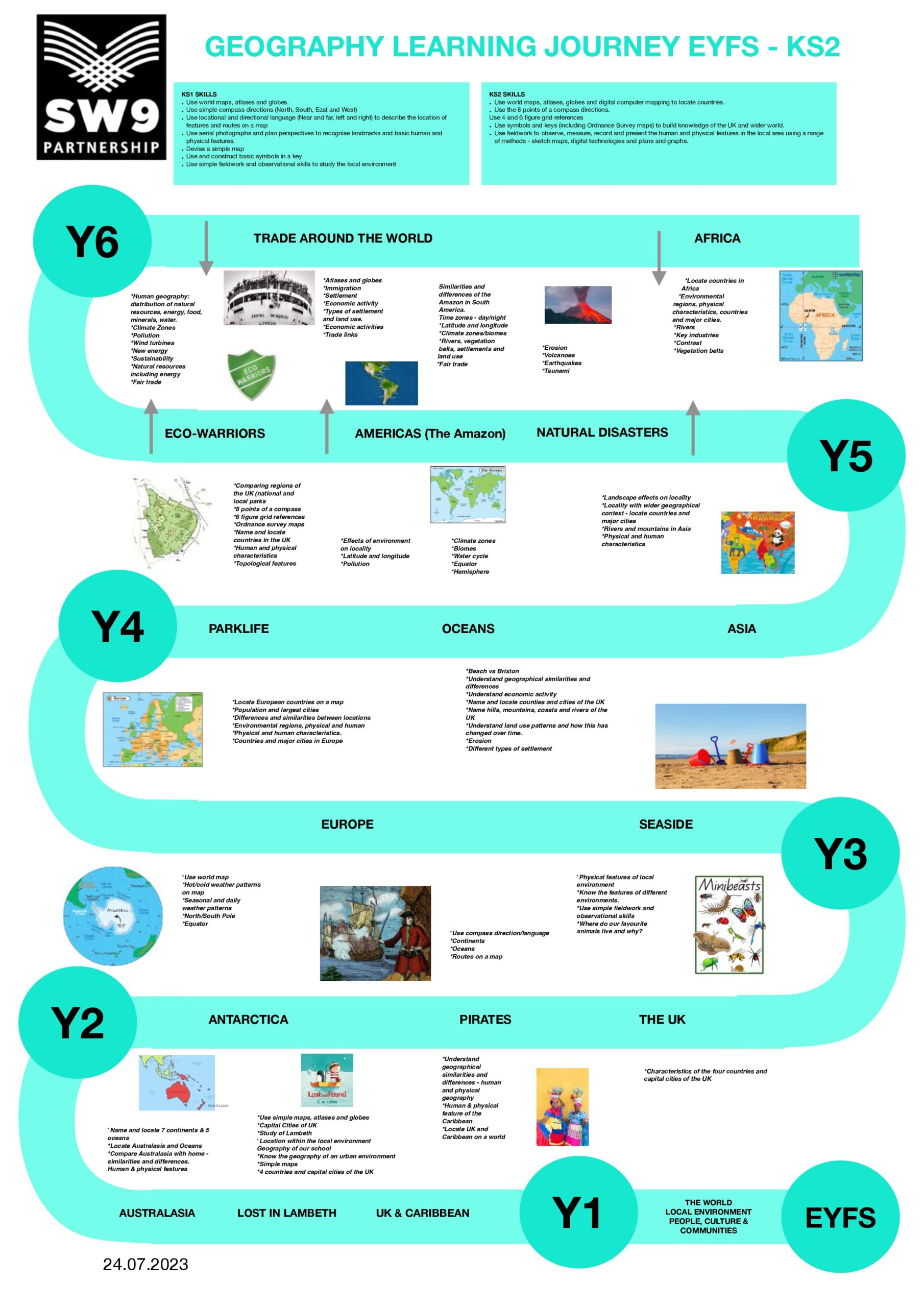Our Vision
Our vision at St. Andrew’s is to inspire our children to be excited about learning and curious about the world they live in.
Our geography curriculum:

click image to enlarge
How do we plan for and teach geography?
Geography is embedded in our topic based approach with teachers planning sequences of lessons that make connections with prior learning while building children’s knowledge and skills.
How do we evaluate learning in geography?
The impact of our geography curriculum can be seen in the children’s books, by talking with the children and through our environment. The detailed unit overview outlines the main learning objectives and enquiry questions that the children will investigate and answer during their learning. The opportunity to evaluate and reflect on the learning is planned for regularly to enable the children to see how their learning is progressing. Children’s progress is tracked through the school’s assessment programme and through key samples of work.
